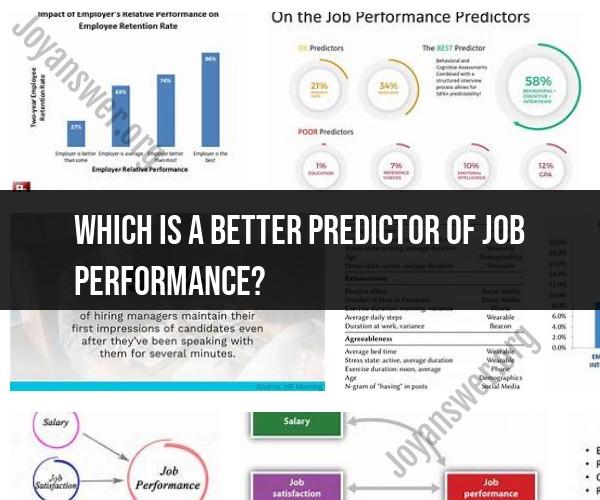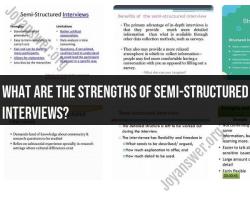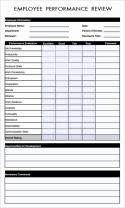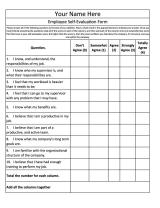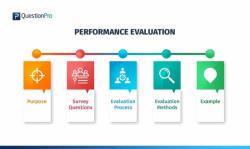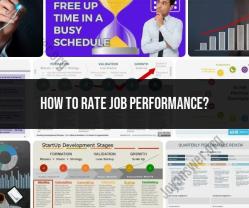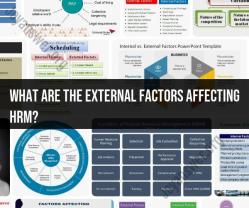Which is a better predictor of job performance?
Predicting job performance is a complex task, and there isn't a single factor that can be universally considered as the "better" predictor of job performance. Job performance is influenced by a combination of factors, and its predictability can vary depending on the nature of the job and the specific context. Here are some factors to consider when predicting job performance:
Skills and Qualifications:
- Relevant skills, education, and qualifications are often strong indicators of job performance. For technical or specialized roles, having the necessary skills and knowledge is crucial.
Work Experience:
- Work experience, especially in similar roles or industries, can be a good predictor of job performance. Candidates with a proven track record may be more likely to excel in a new role.
Cognitive Abilities:
- Cognitive abilities, such as problem-solving skills, critical thinking, and analytical reasoning, can be significant predictors of job performance, especially for roles that require complex decision-making.
Personality Traits:
- Certain personality traits, such as conscientiousness, agreeableness, and emotional stability, can influence job performance. For example, conscientious individuals are often seen as reliable and diligent workers.
Motivation and Job Fit:
- The alignment between an individual's motivations, values, and interests with the job and the organization can impact job performance. When employees are passionate about their work and feel a strong sense of fit, they are more likely to perform well.
References and Recommendations:
- Recommendations and references from previous employers or colleagues can provide valuable insights into a candidate's potential for job success.
Behavioral Interviewing:
- Behavioral interview questions can help assess a candidate's past behavior and actions, which can be indicative of future performance. Asking candidates about how they've handled specific situations in the past can provide valuable insights.
Assessment Tests:
- Various assessment tests, such as personality assessments, cognitive tests, and skills assessments, can be used to predict job performance. These tests are designed to measure specific traits or abilities relevant to the job.
Performance on Job-Related Tasks:
- In some cases, having candidates complete job-related tasks or simulations can provide a direct assessment of their ability to perform the tasks required for the role.
Training and Development:
- The potential for improvement through training and development programs should also be considered. Some candidates may have the aptitude and willingness to learn and grow in the role, even if they lack certain skills initially.
Team and Culture Fit:
- Assessing how well a candidate fits with the team and the organization's culture is important for long-term success. Employees who mesh well with their colleagues and share the organization's values are often more engaged and perform better.
External Factors:
- External factors, such as changes in the industry or the economy, can impact job performance. A candidate's ability to adapt to these external factors may be important in certain roles.
In practice, organizations often use a combination of these factors to predict job performance. The relative importance of each factor can vary depending on the job, industry, and organizational culture. Moreover, it's crucial to consider that no predictive method is perfect, and there will always be some level of uncertainty involved in hiring decisions.
Ultimately, the best approach to predicting job performance is a holistic one that takes into account multiple factors, including skills, experience, personality traits, and job fit, while also considering the specific requirements and context of the role in question.
Comparing Predictive Validity of Job Performance Measures
Predictive validity is the degree to which a job performance measure predicts future job performance. It is one of the most important factors to consider when choosing a job performance measure.
There are many different types of job performance measures, including:
- Cognitive tests: Cognitive tests measure cognitive abilities such as intelligence, problem-solving skills, and memory.
- Personality assessments: Personality assessments measure personality traits such as extraversion, conscientiousness, and agreeableness.
- Work samples: Work samples are simulations of tasks that employees will perform on the job.
- Performance ratings: Performance ratings are judgments of employee performance made by supervisors or peers.
Each type of job performance measure has its own strengths and weaknesses. Cognitive tests and work samples tend to have higher predictive validity than personality assessments and performance ratings. However, personality assessments and performance ratings can also be useful tools for predicting job performance, especially when used in combination with other measures.
Cognitive Tests vs. Personality Assessments for Performance
Cognitive tests and personality assessments are two of the most common types of job performance measures. Cognitive tests measure cognitive abilities such as intelligence, problem-solving skills, and memory. Personality assessments measure personality traits such as extraversion, conscientiousness, and agreeableness.
Cognitive tests tend to have higher predictive validity than personality assessments. This is because cognitive abilities are more directly related to job performance than personality traits. However, personality assessments can also be useful tools for predicting job performance, especially when used in combination with other measures.
For example, a personality assessment may be useful for identifying employees who are likely to be successful in customer service roles. Employees who are high in extraversion and agreeableness are often well-suited for customer service roles because they are able to interact with customers in a friendly and helpful way.
Combining Selection Tools to Optimize Job Performance Prediction
Combining selection tools can be a good way to optimize job performance prediction. This is because different selection tools measure different aspects of job performance. For example, a cognitive test may measure an employee's problem-solving skills, while a personality assessment may measure their conscientiousness.
By combining different selection tools, employers can get a more complete picture of an employee's potential job performance. For example, an employer may choose to use a cognitive test and a personality assessment to screen job applicants. They may then interview the top candidates to learn more about their skills and experience.
By using a combination of selection tools, employers can increase their chances of hiring employees who are likely to be successful in their jobs.
Here are some tips for combining selection tools to optimize job performance prediction:
- Choose selection tools that are relevant to the job.
- Make sure that the selection tools are reliable and valid.
- Use a combination of different types of selection tools.
- Consider the strengths and weaknesses of each selection tool.
- Use the information from the selection tools to make informed hiring decisions.
By following these tips, employers can combine selection tools to optimize job performance prediction and hire employees who are likely to be successful in their jobs.
